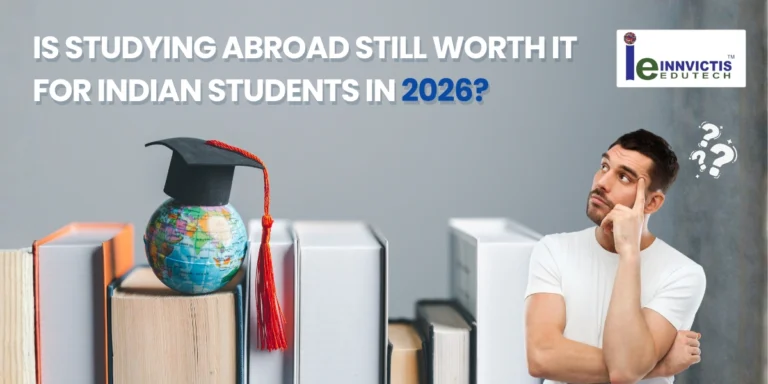The Philippines Known for its tropical climate and vibrant culture, the Philippines has long been a favorite destination for international medical students In 2024, the country made a major overhaul of its internationalization policy between students, especially MBBS (bachelor of Medicine, bachelor of surgery) aspirants To make it neat, it was about creating better opportunities for global students. This article delves into the benefits of this policy change for MBBS candidates and highlights why the Philippines remains the top choice for medical education.
Streamlined Visa Procedures
One of the most important changes from the new system is the simplified visa application process. The Philippine government has launched an online visa application system specifically for international students. This process reduces paperwork and waiting times, making it easier for students to obtain visas. In addition, the new policy includes provisions for multiple-entry student visas, which will allow students to go home and return to the Philippines without having to worry about reapplying for a visa.
Improved Educational Standards
The revised plan emphasizes the advancement of medical education in the Philippines. Government after government has mandated that all medical colleges adhere to international standards set by global accrediting bodies. This includes adopting advanced teaching methods upgrading laboratories, and ensuring that the faculty members are continuously trained in the latest medical developments As a result MBBS programs now have The Philippines are very competitive and on par with offers in Western countries.
Enhanced Student Support Services
Recognizing the challenges faced by international students, the Philippines has introduced comprehensive support as part of the new policy. These services include dedicated international student offices at all major universities, offering assistance with housing, legal information, and academic advice In addition, universities are now offering cultural programs to support internationalization students to adapt to Philippine society and create an inclusive and supportive environment.
Affordable Education and Living Costs
Despite the policy changes, the Philippines offers affordable education and living expenses when compared to other popular destinations like the US, United Kingdom, and Australia Tuition fees for MBBS program species in the Philippines are relatively low and the cost of living is under-budgeted. This makes the Philippines an attractive option for students from India, Pakistan, Nepal, and Nigeria, where the demand for affordable but high-quality medical education is high
Global Recognition and Opportunities
Through the new system, the Philippine government worked to ensure that the country’s medical degrees would be recognized worldwide. They are achieved through bringing the curriculum in line with international standards and through partnerships with medical organizations around the world. As a result, graduates of Philippine medical schools are eligible to practice in various countries such as the United States, Canada, Australia, and the European Union after passing the required licensing exams
Diverse and Inclusive Community
The Philippines has a diverse and multicultural society, which is reflected in the student population. The revised policy encourages promoting cultural exchange programs and including international students in all university activities. This diversity not only enriches the educational experience but also prepares students to work in global healthcare environments where cultural competency is critical.
The Role of Technology in Medical Education
Another priority in policy research 2024 is integrating advanced technology into medical education. The Philippines has invested in state-of-the-art simulation labs, virtual dissection tables, and e-learning platforms to enhance the learning experience of MBBS students These technological advances will provide students with hands-on experience and a better understanding of complex medical procedures in a field where practical skills are as important as theoretical knowledge Essential.
Increased Research Opportunities
The research has also pointed out the importance of research in medical education. The Philippine government has allocated funds to support research projects in various fields of medicine. This program encourages international students to do innovative research, contributing to global medical advances. Collaborations with leading medical institutions enhance these opportunities, allowing students to participate in research that can shape the future of healthcare.
Scholarships and Financial Aid
Recognizing the financial challenges faced by many international students, the Philippine government and universities have introduced new scholarship and financial aid programs These programs are designed to attract talented students from diverse backgrounds, to get the financial support needed to pursue an MBBS degree. Scholarships are awarded based on academic merit, financial need, and ability to contribute to the medical profession, ensuring that deserving students receive a quality education regardless of their financial status.
Focus on Public Health and Community Service
The amended policy also strongly emphasizes public health and community service. Medical colleges must include community health programs in their curriculum, allowing students to work in rural and underserved areas. This hands-on experience enriches students’ education and instills a sense of responsibility and empathy towards the community. By working in these settings, students gain a better understanding of the healthcare challenges faced by different populations and develop the skills needed to address these issues effectively.
Collaboration with International Medical Bodies
To further ensure the global recognition of its medical degrees, the Philippines has strengthened its collaboration with international medical bodies such as the World Health Organization (WHO) and the World Federation for Medical Education (WFME).
These collaborations help align the country’s medical education standards with global benchmarks, ensuring that graduates are well-prepared to meet the demands of international medical practice. Additionally, these partnerships provide opportunities for students to participate in international conferences, workshops, and exchange programs, broadening their horizons and professional networks.
Internship Opportunities
Medical students in the Philippines are increasing to complete their domestic or international internships. Indian students, for example, can complete their internships in India, provided the program is recognized by the National Medical Commission (NMC) of India (Eklavya Overseas : Delhi) (Sheen Stein EduTech).
Clinical Training Requirements: The NMC has set specific requirements for clinical training. Before graduation, medical students must complete at least one year of clinical training in an NMC-accredited hospital or clinical setting. This ensures that students receive practical real-world experience, which is crucial for their professional development (MBBS Expert). Student-Teacher Ratio: The NMC mandates a maximum student-teacher ratio of 12:1 for clinical training. This ensures adequate supervision and personalized attention during the internship (MBBS Expert).
MBBS Programs
Medical universities in the Philippines are reputed by global health organizations such as WHO, NMC (India), UNESCO, and medical boards of many other countries This country ensures that their graduates can attend major international medical examinations for pursuing MBBS The Philippines has cost-effectiveness that helps it adjust smoothly to significant advantages and more valuable program in the Philippines.
Internships and MBBS Programs in the Philippines
Recently, the medical internship program in the Philippines has undergone significant changes in business administration. Medical students in the Philippines can complete their internships domestically or internationally. For example, Indian students can complete their internship in India, provided the program is recognized by the National Medical Commission of India (NMC). The NMC has set out specific requirements for clinical training. Medical students must complete at least one year of clinical training this ensures that students gain practical experience in a real-world setting for their professional development.
The 2024 policy amendments for international students in the Philippines signify a forward-thinking approach to medical education. By addressing key areas such as visa procedures, educational standards, support services, affordability, and global recognition, the Philippines has reinforced its position as a premier destination for MBBS aspirants.
These changes not only benefit the students but also contribute to the global medical community by producing well-trained, competent, and empathetic healthcare professionals. For those considering a career in medicine, the Philippines offers a compelling combination of quality education, cultural diversity, and a supportive environment.
FAQs
1. What are the main changes in the 2024 policy for international students in the Philippines?
The main changes include a streamlined visa application process, enhanced educational standards, improved student support services, and policies ensuring global recognition of medical degrees.
2: How does the new visa application process benefit international students?
The new online visa application system reduces paperwork and waiting time and the introduction of multiple-entry student visas allows students to travel home and return without reapplying for a visa.
3. Are medical degrees from the Philippines recognized globally?
Yes, the amended policy ensures that medical degrees from the Philippines meet international standards, making graduates eligible to practice in various countries after passing the necessary licensing exams.
4. How affordable is it to study and live in the Philippines?
The Philippines offers affordable tuition fees and living costs compared to other popular study destinations, making it an attractive option for students from various countries seeking cost-effective medical education.
5. What support services are available for international students?
Universities in the Philippines now provide dedicated international student offices, cultural orientation programs, and assistance with accommodation, legal matters, and academic counseling.
6. Why is the Philippines a preferred destination for MBBS aspirants from countries like India and Nigeria?
The Philippines offers high-quality yet affordable medical education, a supportive and inclusive environment, and degrees recognized globally, making it an ideal choice for students from these countries.







